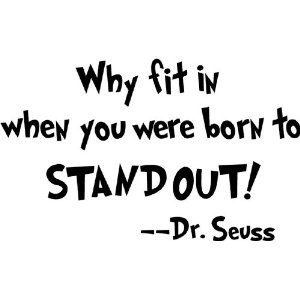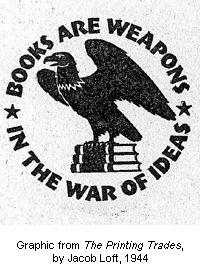In grad school, my critique partner, J-Dawg (a petite, Caucasian, blue-eyed blonde who named herself thus), commented that every writer writes the same thing. Whilst at Mills, J chaired the first Aphra Behn conference, edited an anthology called “Scandalosissima Scoundrelia:’ A Collection of Critical Essays on Mary Delarivier Manley”, and her graduate thesis was something to do with the voices of 18th century women. I sensed a theme early on. It didn’t matter what class she was in, what paper she was writing, somehow, someway, J’s work ALWAYS came around to the writings of subversive women; or to make you all wince, Chicks Acting Up (Well-behaved women rarely make history, right?). “Every writer has a theme,” J-Dawg told me. I had no idea what mine was.
Fast forward to SAM mentioning once that I wrote like Joyce Carol Oates. “That’s a good thing!” he responded to my stricken silence. “Um… great!” I replied brightly, trying to remember what books I’d read of hers past ORDINARY PEOPLE when I was about ten (did I even finish?). I wondered if today’s teens had even ever heard of her. (Probably. BIG MOUTH & UGLY GIRL and AFTER THE WRECK weren’t that long ago.) I had no idea what my agent meant, and became somewhat obsessed with not fulfilling his prophesy – which is completely counter to what editors and publishing houses infer that you should do. Writers are supposed to have a brand, a market, a niche. A THING they do. I didn’t want to do a THING. I didn’t want to write like Joyce Carol Oates – awesome though she might be. I wanted to be free to do what I wanted. This silly supposition that I was supposed to be able to just write what came into my head is the sort of thing that gives marketing people migraines. And yet: marketing isn’t an exact science, is it? Maybe what I wanted to write next was going to be The Next Big Thing. I felt I was doing myself favors by not having a single thing that I did – I wanted to remain open to the possibility of doing it all.
Yeah. Like that works.
This morning I read a Cynsations interview on that very thing. Instead of calling it a theme, Janet S. Fox calls it a “core emotion.” And she agrees: every writer has one. The trick is finding yours.
Why? Because if you can find your core emotion, you can find your life’s thesis, as it were; your reason for writing. So many of us are utterly inarticulate as to the reasons why we’re doing this. The YA lit field is PACKED, stuffed. Why are we writing? Who needs one more book about, even one not about sparkly, emo vampires or zombies or fallen angels or, or, or — ? How can we justify our need to put ink to paper and scribble to the world if we don’t know exactly what it is we’re dying to say? (Because, as Charles Bukowski reminds us, unless it comes out of our souls like a rocket, and we absolutely cannot not say it, we should not speak.)
So, I looked at every book I’ve ever done – the two which are out of print, the more recent three with Knopf – and found they have a common theme. From summer camps to the ETO to Spring Break, every one of my novels has been about relationships. Tangled ones, romantic ones, familial ones, failed ones. This, I think, is what SAM picked up on – JCO is famous for depicting the fractured family. I can live with that, I thought. However, I read a review of HAPPY FAMILIES this week in Bookslut (thanks, Colleen!) which suddenly brought things into focus. Colleen writes:
“…Ysabel and Justin manage to get their parents to get real. It’s this focus on the damage to the family that makes Happy Families really succeed — Davis sees that with all the questions about what transgender means (and those questions are excellently explored), the real core to this novel is that the children were lied to. This is the essence to all of the novels in this column — in one way or another, the parents have failed their children, and in every instance they have insisted that failure did not take place. While some of them feel very badly — particularly in Happy Families — and while some are just complete asses — see Dora — the drama of each novel all comes around to the teenagers demanding fair and worthy attention from the people who are supposed to love them most. It doesn’t work out for all of these families; some are just too damaged to save, but in each case there are moments of amazing honesty in which the kids realize that they deserve to stand up and be heard; they deserve respect. For Ysabel and Justin, that moment is a good one, a not quite happily-ever-after-one, but at least a moment that shows them the way forward.
People who know me, or who get to know me find out in due time that I am not a liar (not a good one, anyway. I tell outrageous lies for fun, and watch people laugh). I am a storyteller – I believe in the power of fiction instead of lies – but I am also straightforward to the point, at times, of making myself and others uncomfortable. I do not respond well to lies. There is only one person I can think of, off the top of my head, who is still my friend after a lie, and there are extremely extraordinary circumstances involved. I have zero tolerance for liars and lying. It has been that way since I was a child and woke up to the lies I was told. Since then, it has been my personal mission to napalm out of existence all lies told to me… and the lies I have lived.
And within this epiphany, I begin to glimpse a theme… a core story. The lies our families tell (sit venia parentum), the lies with which we grow up, which are written on our bodies and secreted in the folds of our brains; the lies which are within the silence that we keep about the ways we’ve had to live, have had to compromise; the lies that inform our identity and shape us, and leave us rootless when we discover the truth… these are my heart matters, my core emotions. This informs my work: characters struggling to rip their way through what they thought they knew, into a world where what they hold within is ALL that is true.
Now, all I have to do is hold onto my truth, and hold it up, until I truly see it, and… well, then, everything should resolve itself from there.
…this is my hope, anyway; that all I will see is my truth, that all will see my truth. That the rocket will trail a light that rivals the sun.



Haha–LOVE your motivational poster. So true. I think my core emotion/theme is being who you are–every varied side of who you are–and believing in yourself even when others don’t. That doesn’t show up in EVERY single poem/manuscript, but in most of them…I do think most writers have a theme/problem that they explore over and over. As long as they don’t use the same story to illuminate that problem, it’s all good:>)
What a beautiful post, Tanita. No lie. 🙂
And I LOVE the opening quote.
Yes, when I saw that little poster, I CRACKED UP. It’s so, so true. And so hard to make people understand: Yes, I want to tell you this… just… don’t look at me.
Thank you so much for this post. I need it. I believe in these words.
And I, Fair, believe that you WILL write…